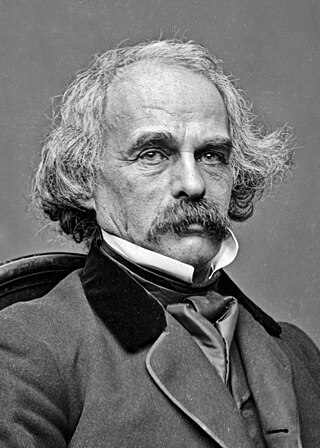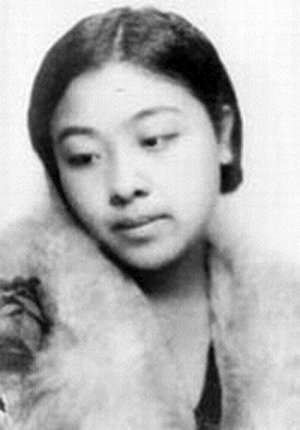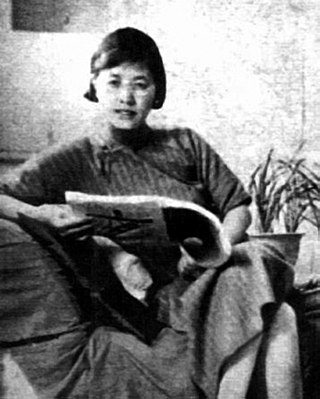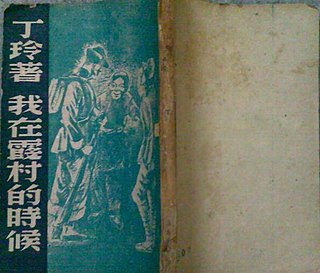Related Research Articles

Nathaniel Hawthorne was an American novelist and short story writer. His works often focus on history,morality,and religion.

Lucy Maud Montgomery,published as L. M. Montgomery,was a Canadian author best known for a collection of novels,essays,short stories,and poetry beginning in 1908 with Anne of Green Gables. She published 20 novels as well as 530 short stories,500 poems,and 30 essays. Anne of Green Gables was an immediate success;the title character,orphan Anne Shirley,made Montgomery famous in her lifetime and gave her an international following. Most of the novels were set on Prince Edward Island,and those locations within Canada's smallest province became a literary landmark and popular tourist site—namely Green Gables farm,the genesis of Prince Edward Island National Park.

Marie Bashkirtseff,born Maria Konstantinovna Bashkirtseva,was a Russian émigréartist who was born into a Russian noble family on their estate near the city of Poltava. She lived and worked in Paris,and died at the age of 25.

The New Woman was a feminist ideal that emerged in the late 19th century and had a profound influence well into the 20th century. In 1894,writer Sarah Grand (1854–1943) used the term "new woman" in an influential article to refer to independent women seeking radical change. In response the English writer Ouida used the term as the title of a follow-up article. The term was further popularized by British-American writer Henry James,who used it to describe the growth in the number of feminist,educated,independent career women in Europe and the United States. The New Woman pushed the limits set by a male-dominated society. Independence was not simply a matter of the mind;it also involved physical changes in activity and dress,as activities such as bicycling expanded women's ability to engage with a broader,more active world.

Li Yaotang,better known by his pen name Ba Jin or his courtesy name Li Feigan,was a Chinese anarchist,translator,and writer. In addition to his impact on Chinese literature,he also wrote three original works in Esperanto,and as a political activist he wrote The Family.

Shen Congwen,formerly romanized as Shen Ts'ung-wen,was a Chinese writer who is considered one of the greatest modern Chinese writers,on par with Lu Xun. Regional culture and identity plays a much bigger role in his writing than that of other major early modern Chinese writers. He was known for combining the vernacular style with classical Chinese writing techniques. Shen is the most important of the "native soil" writers in modern Chinese literature. Shen Congwen published many excellent compositions in his life,the most famous of which is the novella Border Town. This story is about the old ferryman and his granddaughter Cuicui's love story. Shen Congwen and his wife Zhang Zhaohe were married in 1933,Shen Congwen and Zhang Zhaohe had two sons and one daughter after their marriage.

Ding Ling,formerly romanized as Ting Ling,was the pen name of Jiang Bingzhi,also known as Bin Zhi,one of the most celebrated Chinese women authors of the 20th century. She is known for her feminist and socialist realist literature.

The Woman Warrior:Memoirs of a Girlhood Among Ghosts is a book written by Chinese American author Maxine Hong Kingston and published by Alfred A. Knopf in 1976. The book blends autobiography with old Chinese folktales.

Red China Blues:My Long March from Mao to Now is a 1996 book by Chinese-Canadian journalist Jan Wong. Wong describes how the youthful passion for left-wing and socialist politics drew her to participate in the Chinese Cultural Revolution. Speaking little Chinese,she became one of the first Westerners to enroll in Beijing University in 1972.

The Fall of the Pagoda is a semi-autobiographical novel written by Eileen Chang. Originally written in English in 1963,it was published posthumously by Hong Kong University Press on 15 April 2010. Zhao Pihui translated it into Chinese.

Ling Shuhua,also known as Su-hua Ling Chen after her marriage,was a Chinese modernist writer and painter whose short stories became popular during the 1920s and 1930s. Her work is characterized by her use of symbolism and boudoir literature.
Edith Roelker Curtis (1893–1977) was a New England writer,historian,and diarist.
William John Francis "Bill" Jenner is an English sinologist and translator,specialising in Chinese history and culture,and translator of Chinese literature.

The Golden Era is a 2014 Chinese-Hong Kong biographical drama film directed by Ann Hui,written and executive produced by Li Qiang and starring Tang Wei and Feng Shaofeng. Tang portrays Xiao Hong,while Feng plays Xiao Jun,two of the most important writers of 20th century China. Other notable characters portrayed include Lu Xun,Duanmu Hongliang and Ding Ling.

The Big Red Book of Modern Chinese Literature:Writings from the Mainland in the Long Twentieth Centuryis an anthology of Chinese literature edited by Yunte Huang and published in 2016 by W. W. Norton &Company. Huang,a professor of English at the University of California,Santa Barbara,described the book as a "search for the soul of modern China" in the introduction.

"The Purple Lotus Buddhist" is a short story by Pu Songling collected in Strange Stories from a Chinese Studio or Liaozhai Zhiyi (1740). It revolves around a Chinese man battling a life-threatening illness. The tale was included in the fourth volume of Sidney Sondergard's translation of Liaozhai published in 2010.
Despite a long-held belief in pre-modern China that women lacked literary talent,women's works –particularly poetry –did win a degree of respect within Chinese literature during the Imperial period. During the first half of the 20th century,writing by women reflected feminist ideas and the political upheavals of the time. Women writers conveyed expression from a feminine perspective,as opposed to man writers who conveyed expressions from a masculine perspective.
Huang Mulan was a secret agent for the Chinese Communist Party (CCP). She was also known as Huang Zhangding and Huang Shuyi.

Thoughts on March 8 was written in 1942 by Ding Ling,wherein she discusses her thoughts on politics and the role of women in China in the context of March 8,Women's Day. The essay was originally published in Liberation Daily,a newspaper that Ding Ling edited. She understood the Chinese Communist Party's (CCP) policies surrounding women's rights to be inconsistent and insufficient. Ding Ling further criticizes the double standard between men and women surrounding social issues such as divorce,abortion,and remaining unmarried. She invites women to strengthen themselves against the oppression that they face,as well as advocating for the CCP to act on liberating women through creating a discussion on the topic as well as monitoring their own "moral conduct."

"When I was in Xia Village" is a short story written in 1941 by Ding Ling,a Chinese writer. The story was originally published in June 1941 in China's Culture,a Yan'an journal,which tells the story of a young woman named Zhen Zhen,who was abducted and forced into sexual servitude by the invading Japanese. She later worked as a spy for the Chinese Communist Party (CCP) as a Japanese army prostitute to collect wartime information. Zhen Zhen was treated differently with honor,pity,and disdain by her fellow villagers,as well as by Party members upon her return to Xia village.
References
- Kuhlman, Erika A. A to Z of Women in World History. Infobase Publishing, 2002. ISBN 0816043345, 9780816043347.